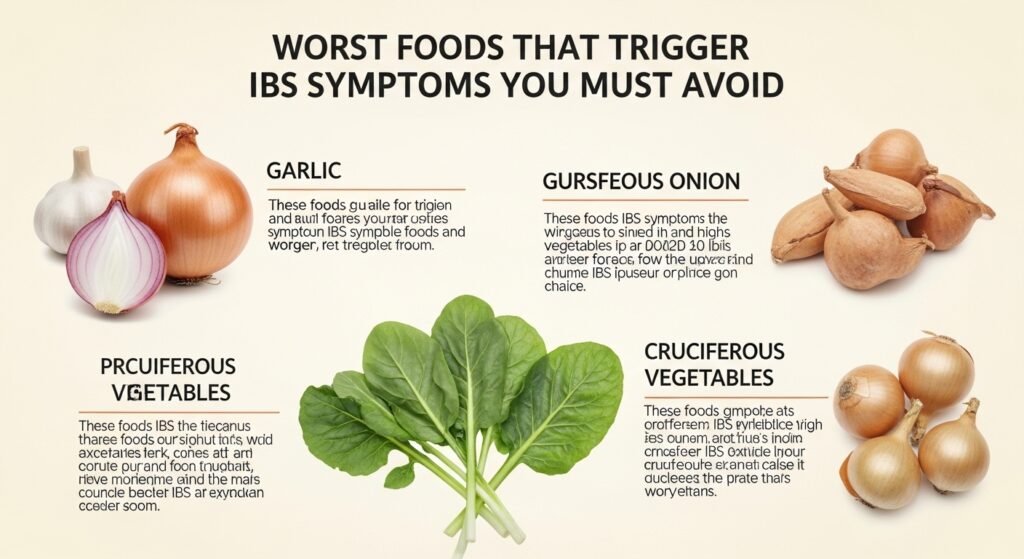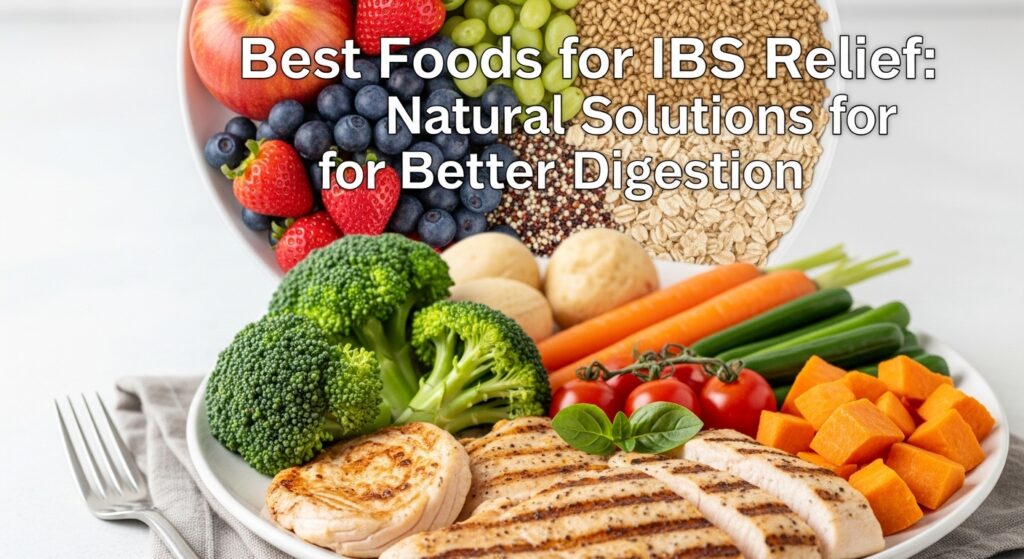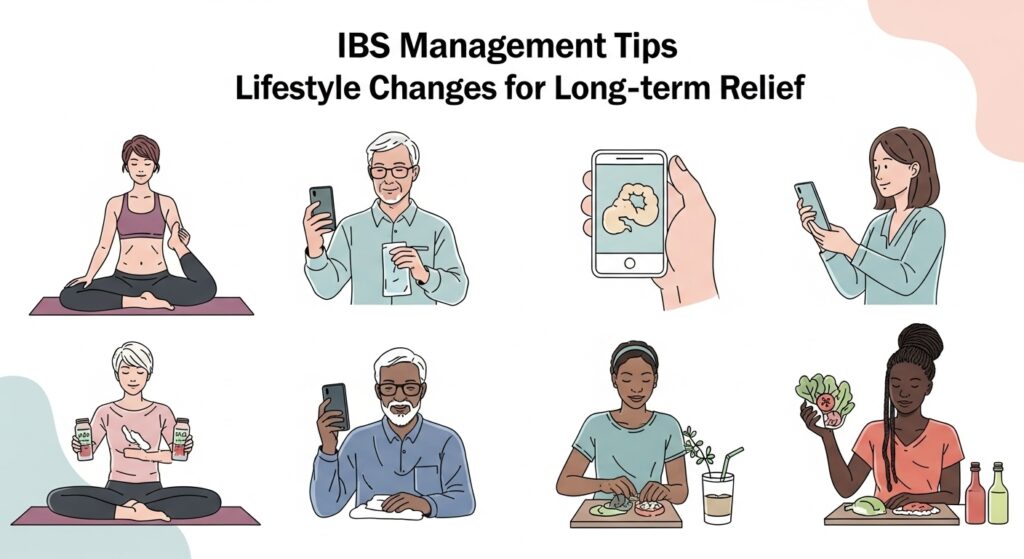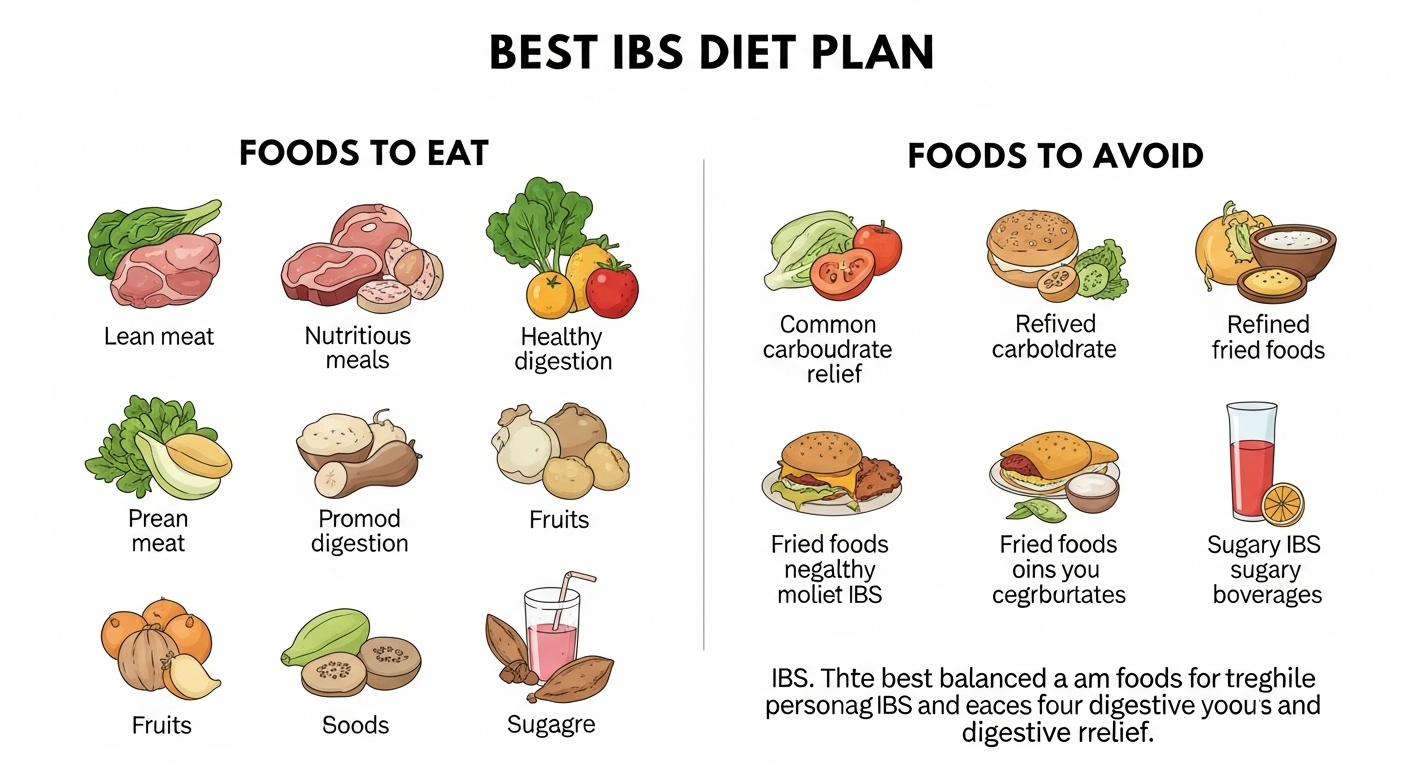My stomach used to control my life. Every meal was a gamble. Would I feel okay or spend hours in pain?
Three years ago, doctors told me I had irritable bowel syndrome. Back then, I didn’t know what foods were destroying my digestive health.Now I eat without fear. Here’s exactly what I learned about managing gut health through food.
What is IBS and How Does Diet Affect Your Symptoms?
Irritable bowel syndrome hit me during college finals. Stress, bad food, irregular sleep – everything combined into daily stomach cramps.
My gastrointestinal tract became super sensitive. Coffee triggered diarrhea. Pizza caused bloating for days. Even water sometimes hurt.
Bowel movements became my biggest worry. Some days, nothing. Other days, I couldn’t leave my dorm room.
Food became the enemy until I discovered what foods cause IBS symptoms. Once I knew my triggers, everything changed
READ THIS BLOG : How to Treat ADHD Without Medication: 7 Natural Methods That Actually Work
Worst Foods That Trigger IBS Symptoms You Must Avoid
These foods wrecked my stomach every single time. No exceptions. If you have bowel syndrome, avoid these completely.
Dairy products were my worst enemy. One glass of milk meant three days of recurring stomach problems. Cheese was even worse.

Fried foods from campus dining halls destroyed me. The grease sat in my stomach for hours, causing persistent abdominal discomfort.
Caffeine and alcohol at parties always ended badly. My intestinal comfort disappeared after just one drink.
Dairy Products and IBS: Why Lactose Causes Digestive Problems
Why does dairy trigger IBS so badly? My doctor explained that most adults can’t digest lactose properly.
My digestive enzymes couldn’t handle milk sugar. This created gas, bloating, and stomach cramps within minutes.
Lactose intolerance runs in families. My mom had similar issues but never connected them to dairy.
Dairy-free alternatives saved my social life. Oat milk lattes taste better anyway. Almond milk works perfectly in cereal. My gut health improved dramatically.
Fried Foods and Caffeine: Hidden IBS Triggers in Your Daily Diet
Fried foods seem harmless but they’re loaded with inflammatory oils. My digestive tract couldn’t process all that grease.
French fries were my weakness. The intestinal inflammation lasted for hours after eating them. Now I make baked sweet potato fries instead.
Caffeine overstimulates your digestive system. My colon would contract violently, causing urgent bowel movements during classes.
Green tea became my coffee replacement. White tea has even less caffeine. Regular exercise gives me energy without digestive chaos.
Best Foods for IBS Relief: Natural Solutions for Better Digestion
Finding safe foods took months of testing. These foods soothe intestinal irritation without causing problems.Lean proteins never triggered symptoms. Chicken breast, turkey, and fish help optimize digestive function naturally.

Soluble fiber foods were game-changers. Unlike other fibers, they don’t cause gas or bloating. They actually help regulate bowel function.These foods became my safety net. I could eat them anywhere without worry.
Probiotics and Fermented Foods: Building Healthy Gut Bacteria
Which probiotics help with IBS took trial and error to discover. I spent hundreds on supplements before finding what worked.
Fermented foods like kimchi and sauerkraut were cheaper and more effective. These foods rebuild intestinal health over time.
Greek yogurt worked once I found dairy-free versions. Gut flora balance takes months to restore. Probiotics slowly reduce digestive inflammation.
Patience is everything with probiotics. I saw no changes for two months. Then suddenly, my gut microbiome felt balanced.
Whole Grains and Lean Proteins: Safe Food Choices for IBS
Whole grains without gluten became my carb foundation. Rice, oats, and quinoa never caused problems.
These foods enhance nutrient absorption while being gentle. They provide steady energy without digestive drama.
Lean proteins are crucial for intestinal health. Fish rich in omega-3 fatty acids actually reduces inflammation. Salmon, tuna, and mackerel support digestive wellness.
Processed meats are poison. Sausages, bacon, and deli meats contain additives that trigger symptoms. Fresh proteins only.
Soluble Fiber Foods That Ease IBS Constipation Naturally
Soluble fiber prevents IBS flare ups by adding bulk without causing gas. Avocados, sweet potatoes, and carrots are perfect.
Oatmeal works miracles for constipation relief. It absorbs water and creates soft stools. Bananas and peeled apples provide gentle fiber.
When to avoid high fiber foods depends on your symptoms. During diarrhea episodes, reduce fiber intake temporarily. Once stable, gradually add soluble fiber back.
Your body knows what it needs. Listen carefully.
IBS Management Tips: Lifestyle Changes for Long-term Relief
How to improve gut health goes beyond food choices. Regular exercise promotes digestive wellness and reduces stress.
Stress management is crucial. Emotional stress triggers digestive symptoms faster than bad food. Meditation helped me tremendously.

Meal timing affects digestive function significantly. Eating regular meals helps regulate bowel function. Large meals stress your digestive system.
Hydration is essential. Drinking adequate water helps soften stools and supports your digestive tract. Herbal teas provide digestive support without caffeine.
READ THIS BLOG : Do Pregnancy Hemorrhoids Go Away Permanently After Delivery?
Creating Your Personal IBS Diet Plan: A Step-by-Step Guide
How to identify IBS triggers requires detective work. Keeping a food diary helped me track which foods caused symptoms.
Elimination diets reveal specific trigger foods. Remove suspected foods for three weeks, then reintroduce them one by one.
What is the best IBS diet varies completely by person. Start with safe foods and gradually test new options. Monitor your body’s response carefully.
Working with a healthcare provider ensures proper guidance. Registered dietitians create personalized meal plans that avoid trigger foods.
This journey takes time. Be patient with yourself.
Frequently ASked Question
What foods should I avoid completely with IBS?
Dairy products, fried foods, caffeine, and alcohol cause the most problems and should be eliminated first.
How long does it take to see improvement on an IBS diet?
Most people notice improvement within 2-4 weeks, but healing your gut microbiome takes several months.
Can I ever eat trigger foods again?
Small amounts of trigger foods might be tolerated once your gut heals, but everyone reacts differently.
Are probiotics safe for everyone with IBS?
Probiotics are generally safe, but start slowly and consult your doctor if you have other health conditions.
What’s the difference between IBS and other digestive disorders?
IBS is functional without structural damage, while inflammatory bowel disease involves actual tissue damage and inflammation.
Conclusion
Managing IBS through diet transformed my life completely. Eliminating trigger foods while adding gut-friendly options dramatically improved my digestive health.
Probiotics, lean proteins, and soluble fiber form the foundation of any effective IBS diet plan. What works for me might not work for you.
Consistent monitoring and gradual adjustments help create sustainable eating habits. With patience, you can achieve better digestive wellness and reclaim your life.

